LoVEBiRD claims cassava in their Grain-Free Cereal has “non detectable levels of heavy metals”… our independent lab detected Lead
For those new to the Lead Safe Mama website:
Tamara Rubin is a multiple-federal-award-winning independent advocate for childhood Lead poisoning prevention and consumer goods safety, and a documentary filmmaker. She is also a mother of Lead-poisoned children (two of her four sons were acutely Lead-poisoned in 2005).
- Tamara owns and runs Lead Safe Mama, LLC — a unique community collaborative woman-owned small business for childhood Lead poisoning prevention and consumer goods safety.
- Since July of 2022, the work of Lead Safe Mama, LLC has been responsible for five product recalls (FDA and CPSC).
- All test results reported on this website are science-based, accurate, and replicable.
- Please check out our press page to see some of the amazing coverage of our work so far this year!
Affiliate link to the test kit Lead Safe Mama, LLC uses for the laboratory food test results we publish: https://amzn.to/3UIPcHP.
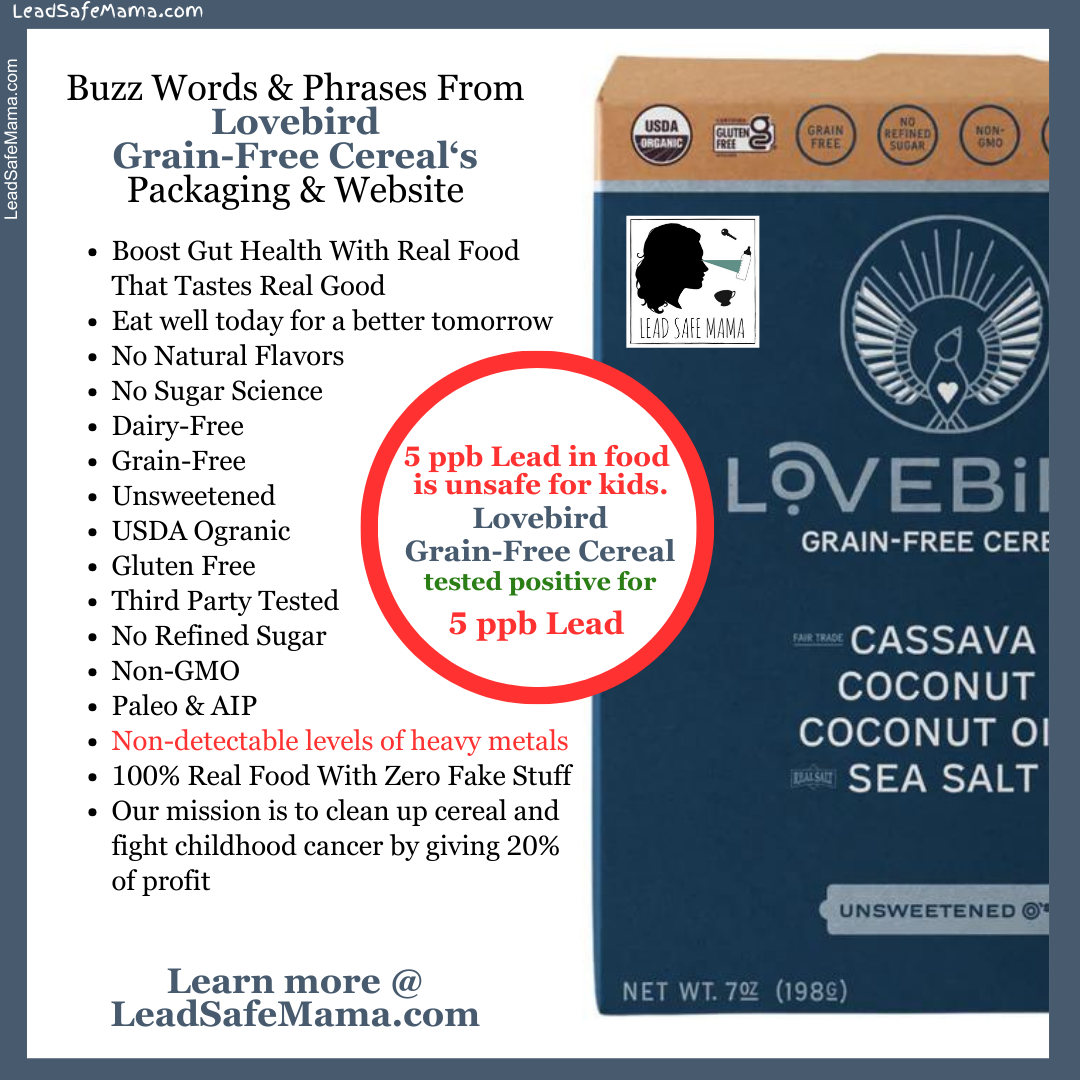
This is an ad-free article.
Advertising and affiliate income help Lead Safe Mama, LLC cover the costs of the work we do here (independent consumer goods testing and childhood Lead-poisoning prevention advocacy). We have removed ads from most of our more widely-read articles (and newly published articles, too — like this one!) to make them easier for you to read. In addition to supporting this work by starting any shopping you might be doing with a click on our affiliate links, if you would like to support the independent consumer goods testing and childhood Lead poisoning prevention advocacy work of Lead Safe Mama, LLC by making a contribution (which will also help us keep our more widely-read articles ad-free), click here. Thank you!
Important Background: What is an Action Level?
Please note the following key points.
The original lab report for this product is below (at the bottom of this page).
The graphic above shows the levels of metals detected in this product (in red) along with the low threshold of detection (in green) for each the metals not detected with the laboratory testing that Lead Safe Mama, LLC had completed for this product. The numbers are juxtaposed to (in blue) the Action Level that was proposed by the medical and scientific community in 2021 as part of the Baby Food Safety Act.
- These levels were set as “Action Levels” that are (in fact) protective of human health.
- An “Action Level” is NOT the same as a “Maximum Allowable Level.”
- Once something is as toxic as the “Action Level” it is officially over any safe threshold and into the realm of heavy metal levels that can cause lasting harm to children.
- The “Action Level” is the level at which the scientific and medical community believes the company (or government) needs to take ACTION to fix the problem (which also includes taking ACTION to inform the public that their product has an unsafe level of the metal detected at-or-above the “Action Level” — and which relevant batch numbers should be recalled/ not consumed).
- These Action Levels are not arbitrary, however they were not passed into law.
- They reflect the current advice of the medical and scientific communities for what is protective of infants and toddlers — regardless of the fact that it is not illegal to have food for children test positive at these levels. The Baby Food Safety Act of 2021 was not passed into law.
- The legitimacy of these levels as “Action Levels”/ “Levels of Concern” (even though they were not adopted as law) is similar to the legitimacy of the America Academy of Pediatrics’ level of concern for Lead in water — which is 1 ppb — even though the FDA’s official “level of concern” for Lead in water is 15 ppb (you can read more about that here).
As the test done for this food product (LoVEBiRD) was one of our earlier tests (our second round of food testing in May 2024, before our test reports reflected more specific low levels of detection — which started this month, in June 2024). In these earlier 14 laboratory food tests we conducted, the low threshold of detection noted for Cadmium, Mercury, and Arsenic is higher than the proposed (2021) “Action Levels.” What this means is that it’s possible for those metals to be present in this food at levels below the levels noted in green, but still above the Action Levels (still at levels that are considered potentially harmful to children).
This month (June 2024) after the first two batches of food testing we conducted, we asked the lab if they would be able to report down to a lower level threshold of detection for us. They got back to us and confirmed they could in fact easily report the list of metals detected for the food testing we’re requesting using lower thresholds of detection — levels much more useful for demonstrating the presence or absence of concerning metals — when referencing the levels noted in the Baby Food Safety Act of 2021. Starting this month (June 2024) and moving forward, all reports for the laboratory food testing Lead Safe Mama, LLC conducts will now utilize these new lower thresholds. As a result, we may re-test this particular product with the lab’s new reporting capability to try determining if there are any other metals present at a concerning level (in addition to the Lead we confirmed with this first round of testing).
For safer food choices, click here.
Published: June 28, 2024
First, a handful of screenshots from the LoVEBiRD website (continue reading below these images)…
The most important screenshot from the LoVEBiRD website is the one directly above. Toward the bottom of this screenshot you will read: “I have tested over 10 different suppliers from around the world and found 1 that has non detectable levels of heavy metals.” Here’s some highlights reviewing what’s wrong with that statement (and other statements the company has made on their website and in their marketing materials):
- As you can see from our laboratory test result (below/bottom of this page) for the product pictured (in the blue box above), this LoVEBiRD cassava-base cereal does not have “non detectable levels of heavy metals.” In fact, the finished cereal product (that Lead Safe Mama, LLC had tested by a lab in May of 2024) came back as positive for FIVE (5) parts per billion (ppb) Lead. Shown in this graphic below as well…
- This means that the manufacturer either does not test every batch, or (more likely, based on the statement on their website (see the image directly below), which is a screenshot from their website taken in May of 2024) that their lab’s low threshold of detection is not low enough to test for Lead to an appropriately low level to determine if their products are actually safe for consumption by young children.
- The above image includes this false statement: “Please note that the lowest limit for testing heavy metals is <10 ppb (not true) for all metals except Mercury at <4 ppb (also note true).” You can see our test reports, which have lower thresholds of detection for both Lead and Mercury by clicking this link.
- And also this false statement: “If an ingredient or product is labeled a <10 ppb it means it doesn’t have a detectable amount as the most stringent testing level.” (100% not true. A “<10” result on laboratory testing only means the detectable level is some level below “10,” which could be as high as 9.999999999). Separately, lower/ more “stringent” thresholds of Lead in lab reports are possible — again… as you can see from the limits on the reports for the food testing Lead Safe Mama, LLC conducted in June — click to see those here).
- This is the most true statement from the image above: “It’s important you have the information necessary to make informed decisions for your and your family.” — I couldn’t agree with this more!
- Separately, given the fact there are other ingredients in this finished food product (i.e. it is not a single-ingredient cassava-based cereal; it also includes the other ingredients listed in the image below) means that the Lead level of the CASSAVA used in this cereal (which they are claiming is the ingredient that is non-detect for Lead) is also likely much higher than the 5 ppb Lead we detected — the other ingredients likely dilute the levels found (given the other ingredients are not foods known to be high in Lead in the same way cassava is known to be high in Lead). This further calls the manufacturer’s statement into question (regardless of the reason their statement is not correct).
- Given the 2021 proposed baby food legislation set an Action Level of 5 ppb Lead, this finished product actually tested positive for an unsafe level of Lead (within that context).
- The proposed Action Level (which, unfortunately was not adopted into law) is the level at which the scientific and medical community considers a product unsafe for consumption by young children — and the level at which ACTION needs to be taken on two points: A) addressing the concern/ bringing the levels lower (reducing them to an acceptable level) and B) notifying the public that there is an unsafe level of Lead in the product so parents can choose to stop eating the product/ will know to stop feeding the product to their children (see the chart below, which is a screenshot from the proposed legislation).
- Note: While one could cite the “10 ppb” level for infant and toddler food that is “cereal” (in the chart above), it is important to clarify WHY the 5 ppb level really applies in this particular case (instead of the 10 ppb level).
- The 10 ppb “cereal” Action Level specifically was set to take into account the fact that “cereal” is typically consumed with milk.
- In that circumstance, the milk (being a liquid) should (theoretically) have lower Lead levels – lower than 5 ppb (and hopefully closer to 1 ppb or lower) and in that scenario, mixing the cereal with milk will lower the overall level of the food to below 5 ppb Lead.
- That was the logic for proposing setting the Action Level for “cereal” for Lead at 10 ppb.
- However, as any parent of an infant or toddler knows, this type of cereal (formed/ shaped into small Os to make them easy for children to hold and put into their own mouth) is more-often-than-not used as a snack food for infants and toddlers, rather than always served as a “bowl of cereal” diluted with milk). What parent has not filled a to-go cup or baggie with “cheerios” (or some alternative similar product) to take with them to the park as an easy snack!?
- It is for this reason the Action Level for this specific sort of food, products sold as cereals but just as often consumed “straight” (i.e. undiluted — as snack foods), should have been set at 5 ppb Lead.
- Unfortunately, the Baby Food Safety Act of 2021, which included the above noted recommendations made by the scientific and medical community, was not passed into law. In fact, there is currently NO legislatively mandated federal standard for safety for food across the board (as measured in ppb) that is truly protective of human health — let alone one that protects the health of infants and toddlers (who eat all foods — not just baby foods).
- On top of all of the above points, the fact that this company uses their anti-cancer mission as part of their marketing strategy is quite concerning given the presence of an unsafe level of Lead in their cereal.
Takeaway
This cereal is advertised as being essentially Lead-free. This is misleading marketing at best — and potentially harmful (in a worst-case scenario, especially for younger children who might eat it daily). This cereal has enough Lead in it that, were it to be categorized not as a “cereal” expected to be normally served/ diluted with milk but rather as it is commonly used: A snack food consumed by infants and toddlers — it would test positive for Lead at the proposed 2021 Action Level. If you have been feeding this to your young children, I would stop doing that immediately and consider getting them a Blood Lead Test (to help determine if they have had any exposure of concern from eating this product). You can learn more about that at this link, and this link.
Some additional reading & links that may be of interest:
- The Lead Safe Mama affiliate link to purchase the test kits we used for this testing.
- Our landing page with links to all of the results for food products we have tested.
- Here’s how to send your own food samples into a lab for testing (the cost is $195 per single food sample tested for Lead, Cadmium, Mercury, and Arsenic) or how to collaborate with Lead Safe Mama, LLC on the food testing we’re hosting.
- The Food category of articles here on Lead Safe Mama dot com.
Amazon links are affiliate links. If you purchase something after clicking a Lead Safe Mama, LLC Amazon affiliate link, we may receive a percentage of what you spend at no extra cost to you.
Never Miss an Important Article Again!
Join our Email List






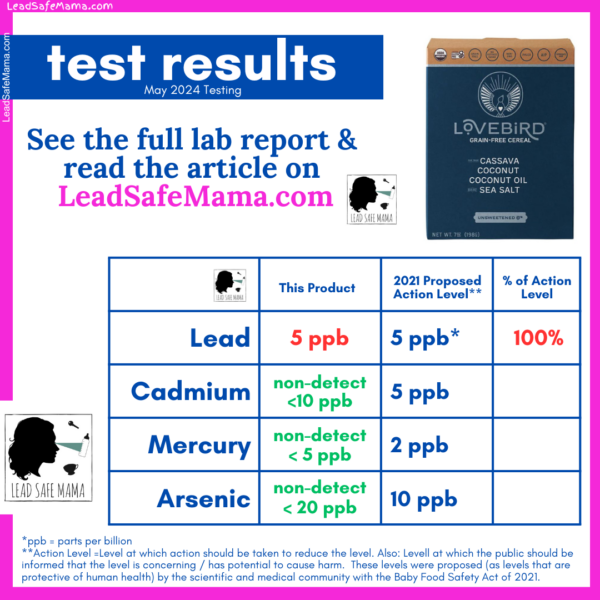
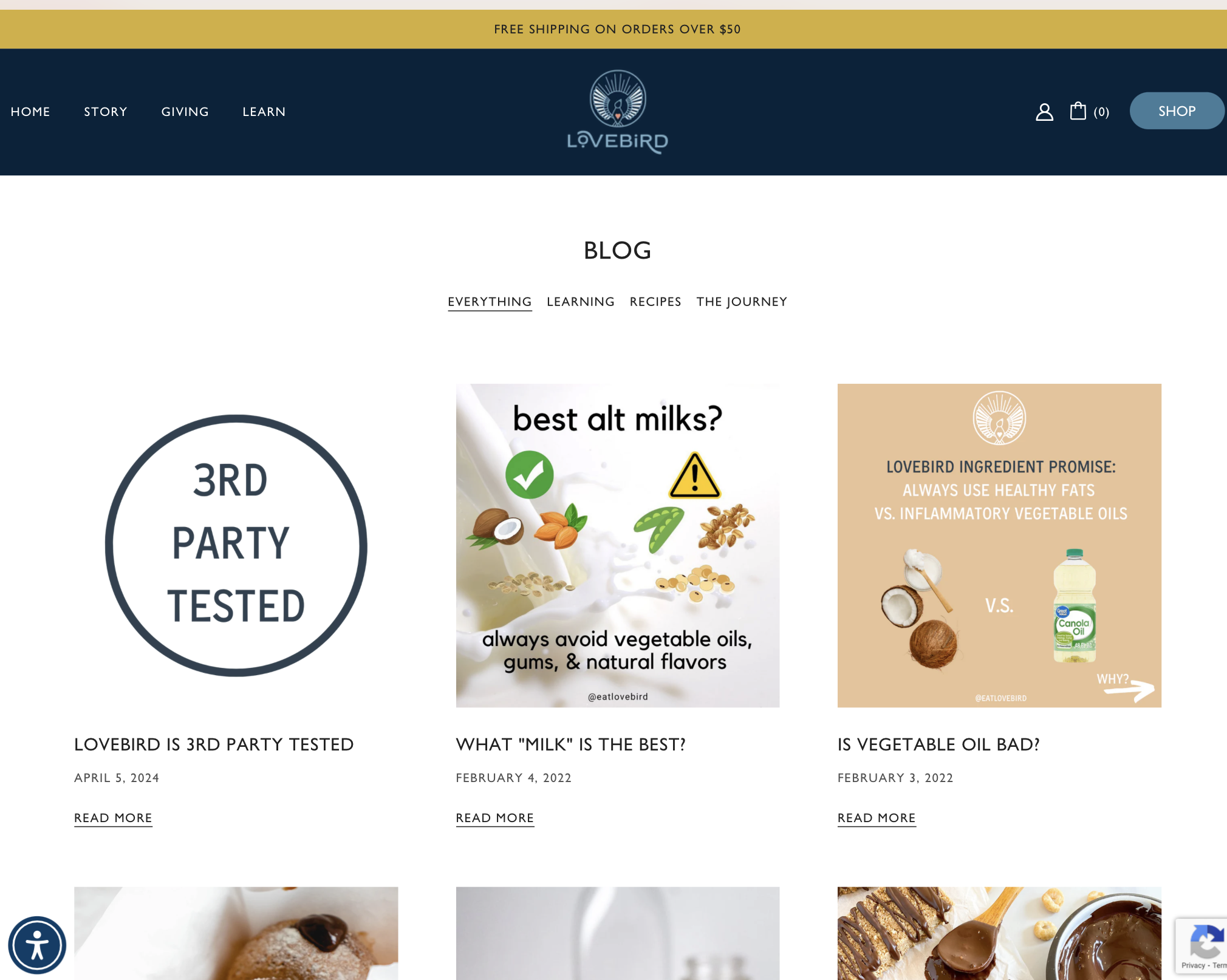
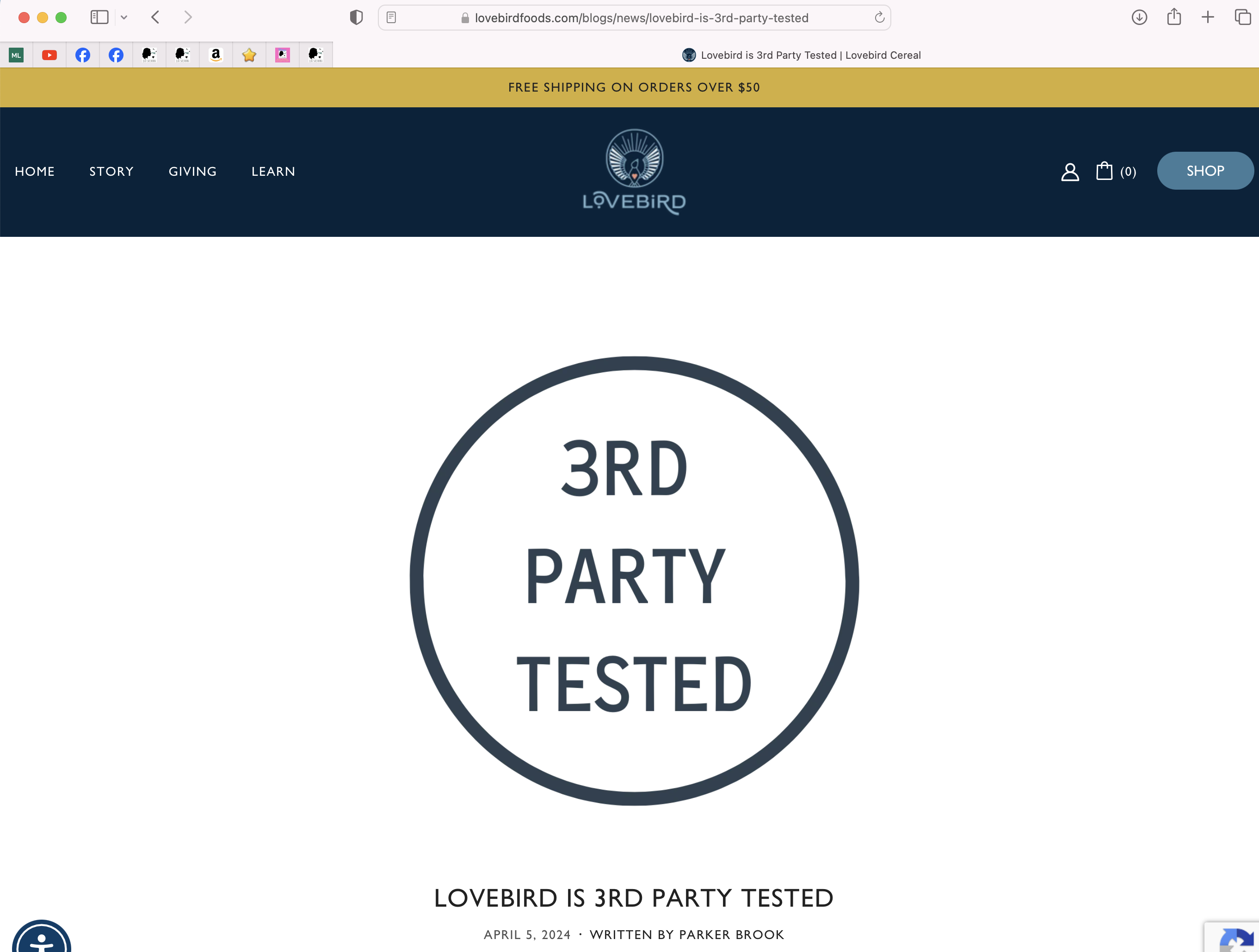
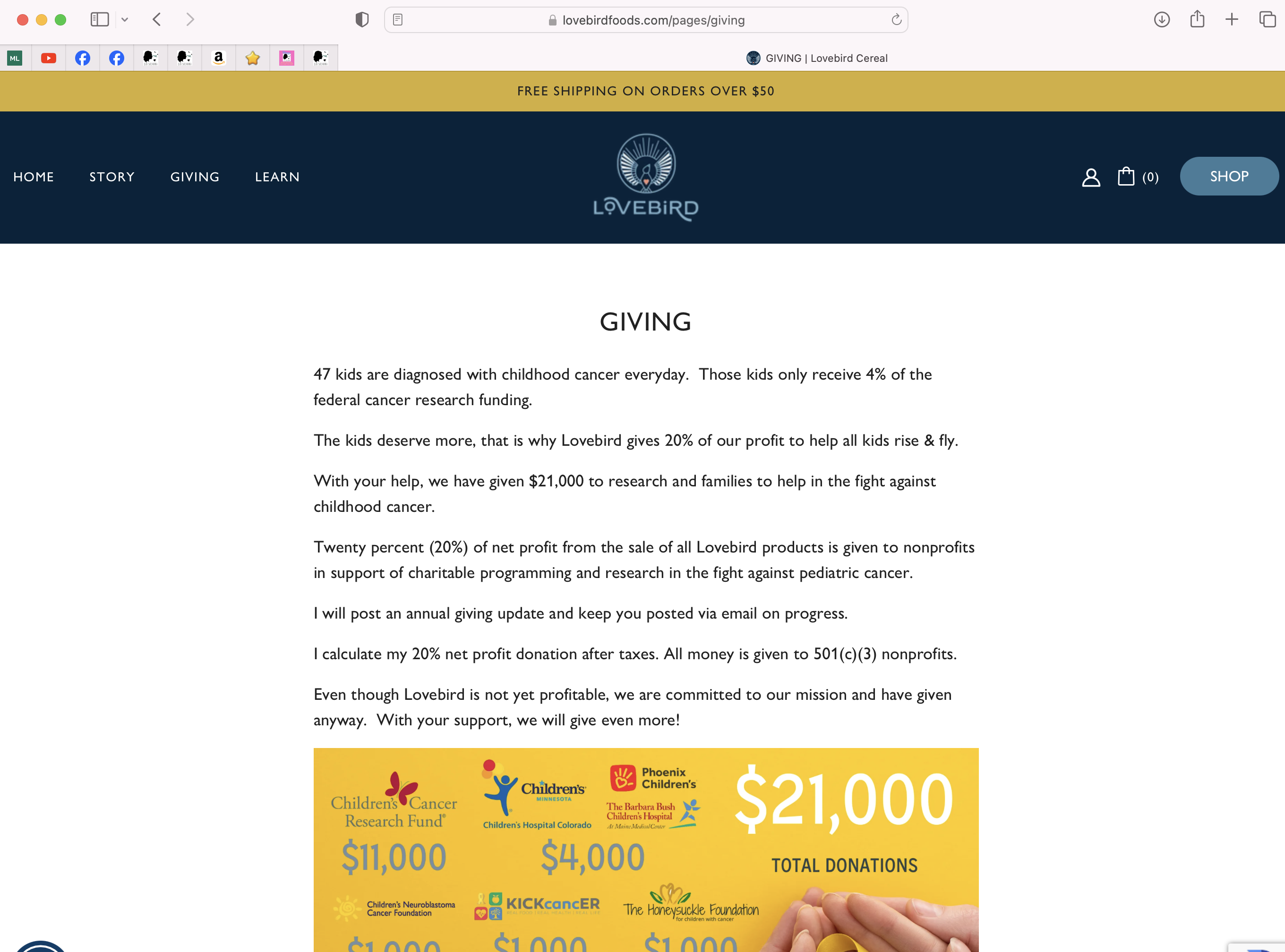
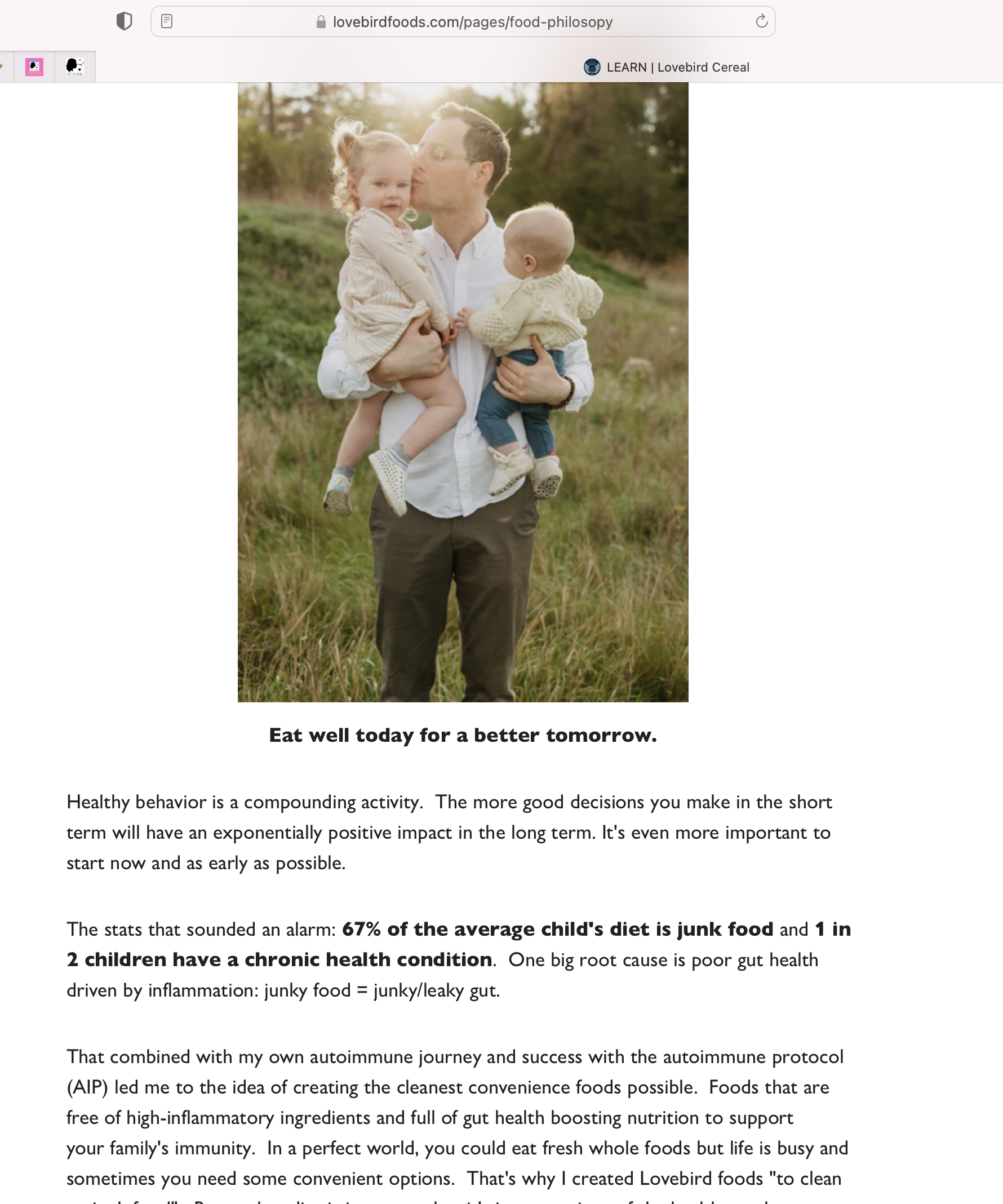
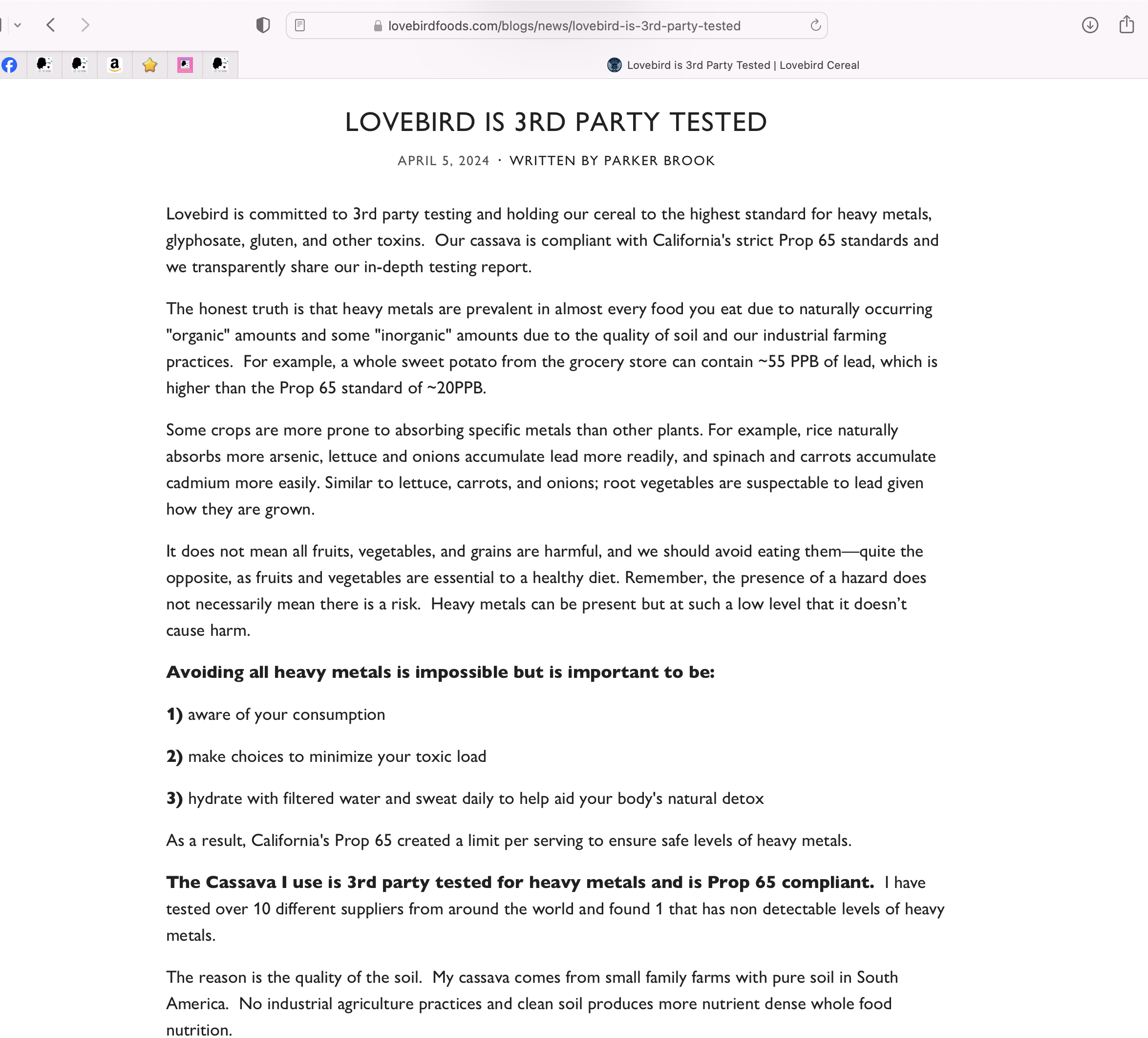
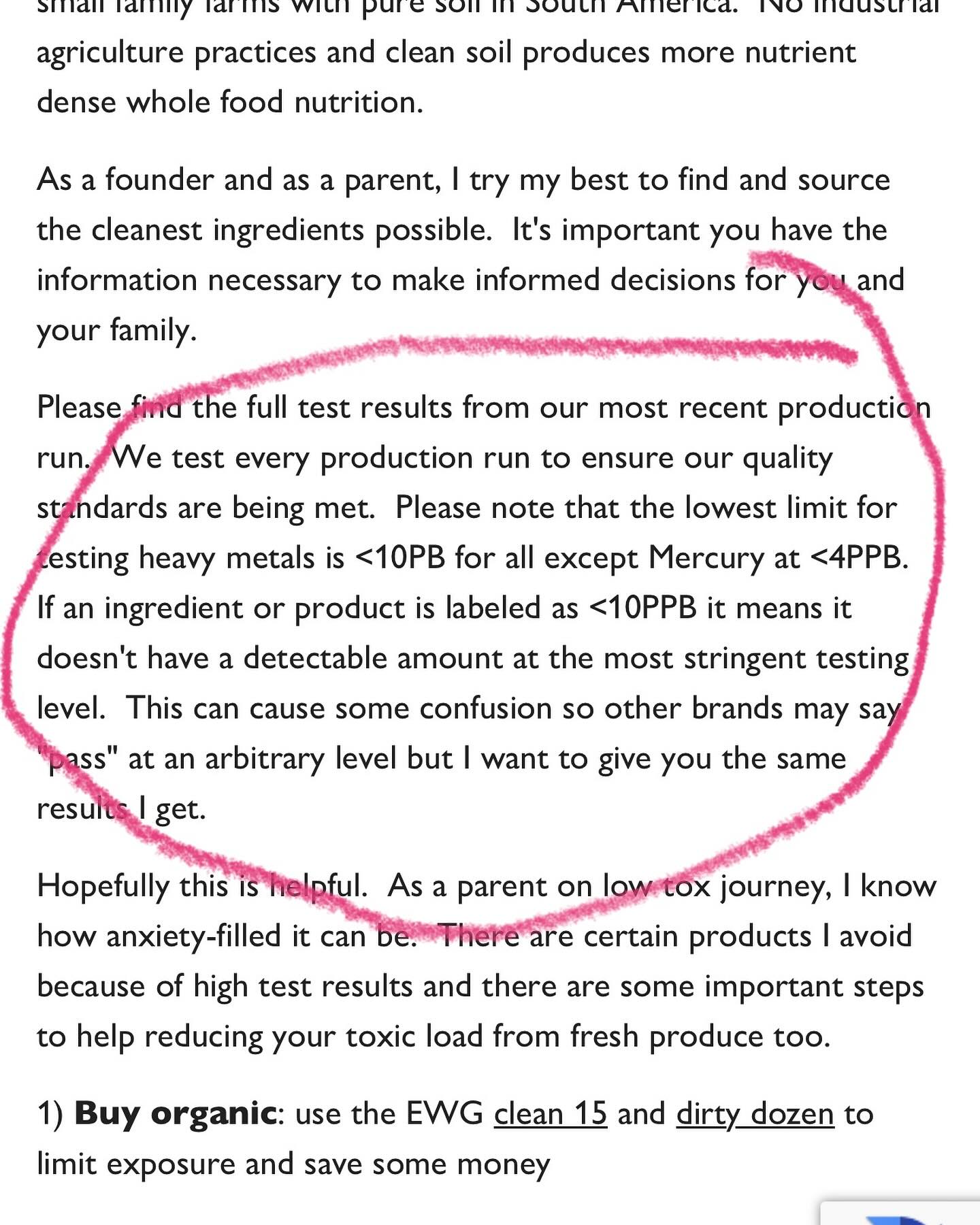
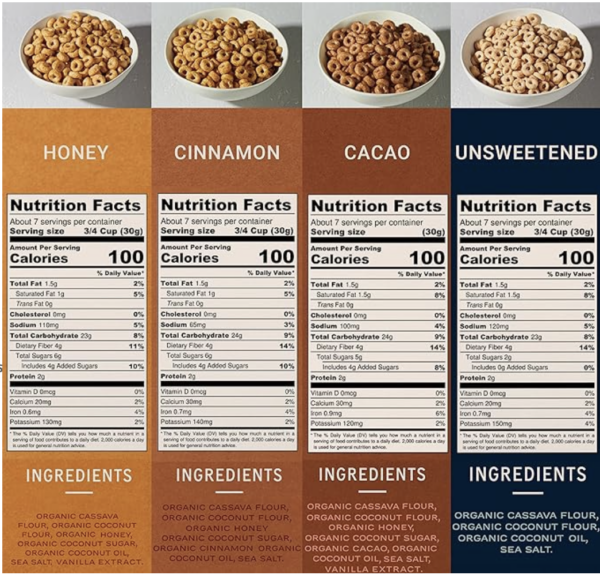

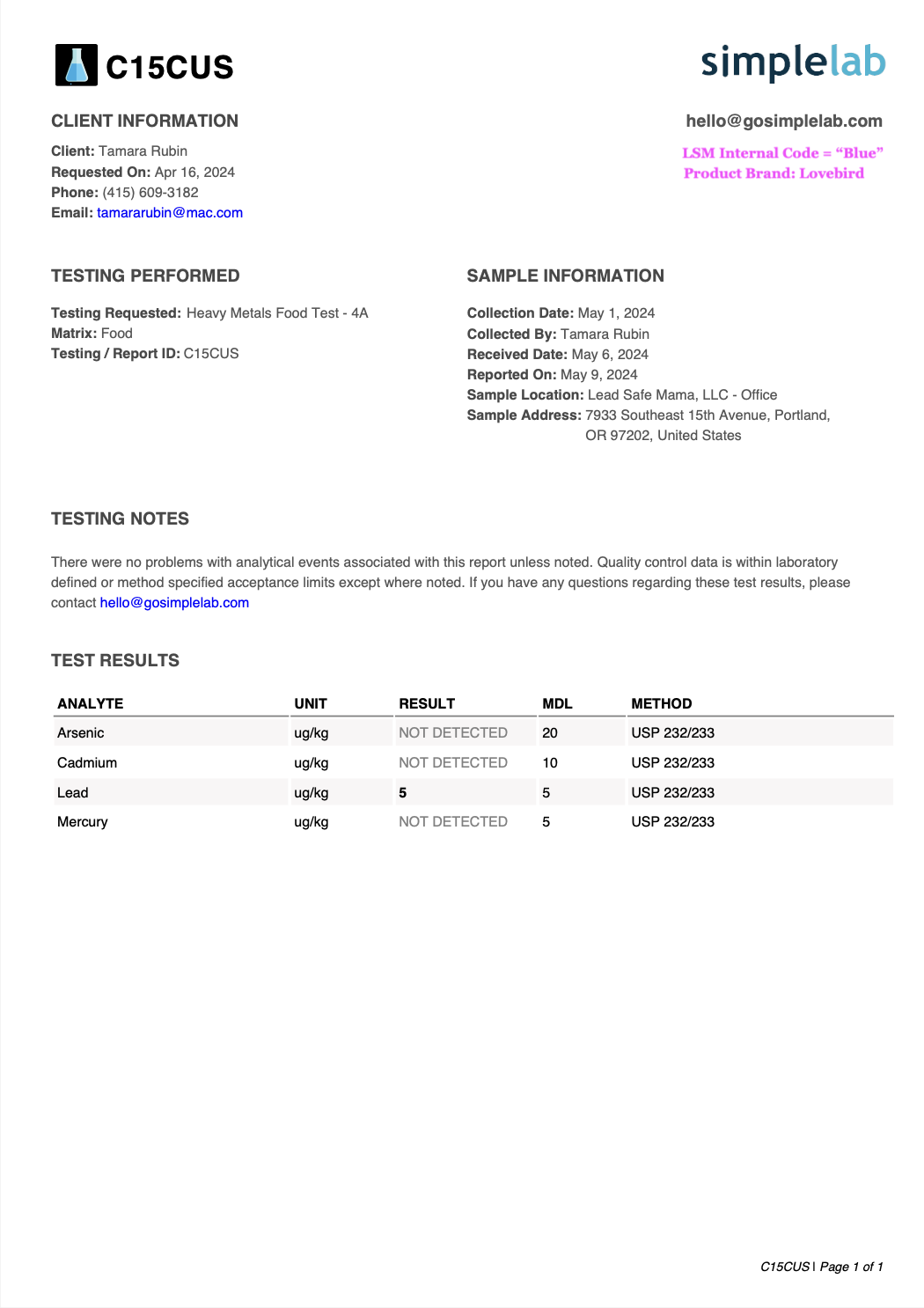

Hello,
My children and I have been heavy metal poisoned from mercury silver dental amalgams then lead poisoning from cassava, salts, and water.
We have incorporated blood and many energy modules( bio-resonance, muscle, and Neutral Pendulum testing) to help us find safe foods because of the severity of our food challenges. Thank you Lead Safe Mama for your commitment to never give up on finding the truth for your children and letting mine benefit as well…I pray you continue to be truly blessed with the truth in Jesus’ name. I know you are Jewish and deeply respect you. ( My Savior is Jewish ) Please believe me when I say I did not type this in the hopes of offending. That is not my goal. I just want you to know where I am coming from 🙂
I came across this article https://www.tastingtable.com/1596719/veggie-puff-snacks-lead-levels-consumer-reports/
I am hoping you will add this sorghum flour to your list to be tested because I think the food industry is going to pivot quickly and hard to sorghum because of your findings.
https://namastefoods.com/collections/raw-goods-gluten-free-scratch-made-baking-staples/products/organic-gluten-free-sorghum-flour
Have you reached out to the founder and shared your findings? I do commend what you are doing but also hope
You reach out. I think companies like lovebird are trying to make better options for us and really doing their best to test everything. But in todays age with our world being so toxic it is so hard. I’m sure they would try to address this. I’m curious someone like his response?
We have had some exchanges. He publicly misrepresented my findings – which was a horrible response.
T
I’m at a point now where I am feeling extremely discouraged. As a person who was lead poisoned ( writing this with an IV full of a lead chelation agent dripping into my body ), and who also has autoimmune issues, I am searching online for grain free options, and am at the point where I’ll take something that is at least testing on the lower end, that not tested at all.
We need to be substituting – not with grains – but with whole fresh foods.
Right – but it’s beginning to feel like everything is contaminated with heavy metals – any plans on testing fresh food?
And this cereal was supposed to be my grain free breakfast option for busy mornings.
Independent science clearly demonstrates that most whole fresh foods are not anywhere near as contaminated as packaged processed foods.
We have a list of more than 30 foods that have tested “non-detect” for heavy metals so far.